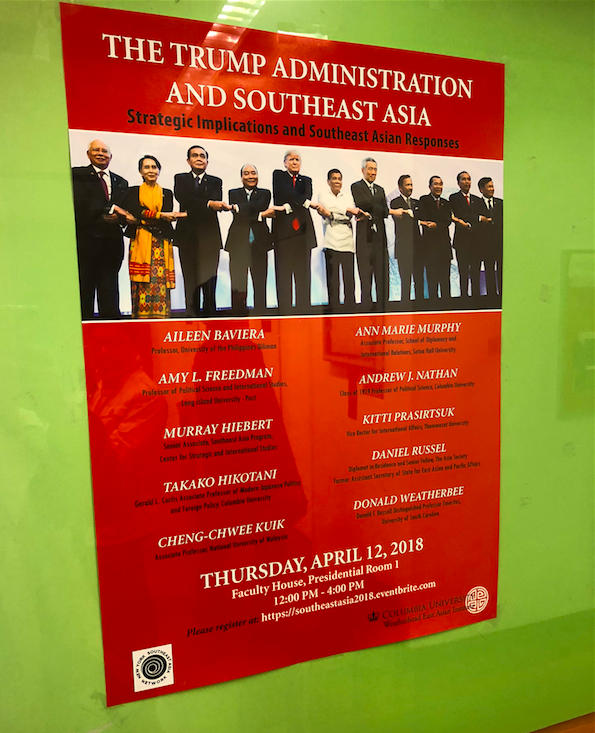Pathways President Dr Aileen Baviera was invited as a resource person in a number of policy and academic roundtables organized by government agencies. On February 20, the Foreign Service Institute hosted a discussion on the Quad and IndoPacific, where Dr Baviera spoke about “Chinese perspectives on the Quadrilateral Security Dialogue”. The regional security architecture was the subject of a discussion held at the Office of Strategic Studies and Strategy Management (OSSSM), Armed Forces of the Philippines on February 23, where Dr Baviera spoke on the “Evolving Regional Security Architecture” while Pathways research affiliate Mark Manantan was invited to present his thesis on “The Philippines’ Pivot to China”. Dr Baviera also delivered a lecture at the National Defense College of the Philippines on April 18, on the subject of “Geopolitics and Great Power Rivalry in the Asia Pacific” before students of the Masters in National Security Administration program.
Overseas engagements by Pathways during the first quarter of 2018 included participation at a workshop on China’s Belt and Road Initiative organized by the Center for Strategic and International Studies in Jakarta, Indonesia in early March, as well as a conference by the China Institute of Marine Affairs in Beijing from March 26-28 (interestingly coinciding with the secret visit of North Korean leader Kim Jong Un to Beijing). Dr Baviera’s Beijing presentation was titled “Code of Conduct in the South China Sea: When Skeptics Win, Everyone Else Loses”. On the other hand, Pathways Chairman Raphael Lotilla participated once more in the annual Boao Forum for Asia in Haikou, China in early April. This year’s forum - the 17th - was remarkable for the speech Chinese President Xi Jinping delivered to launch his new economic agenda for China.

At Columbia University in New York City, the Southeast Asian Studies program held two forums last April 12 and 13. The first - a public event - examined how selected Southeast Asian countries were responding to the new regional dynamics characterized by Trump’s foreign policy posture and China’s continuing pro-activeness. Dr Baviera presented her assessments of the Philippine case. The second was a closed-door session involving selected Southeast Asianists that included discussions of China-Myanmar relations. Among the experts at the two meetings were organizer Ann Marie Murphy, Donald Weatherbee, Murray Hiebert, Yun Sun, Cheng-chwee Kuik, Kitti Prasertsuk, Adam Schwarz and Andrew Nathan.


